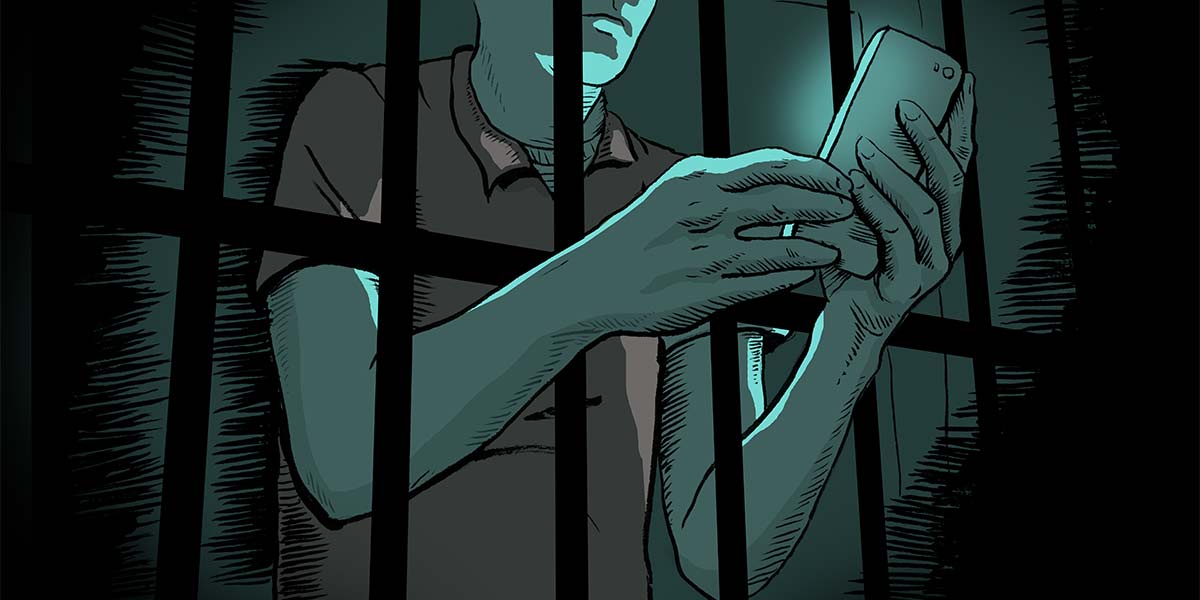Update, November 9, 2022: We are happy to announce that Aryan Eqbal has been released along with other digital rights defenders. Jadi Mirmirani remains wrongfully detained. We will continue to monitor the situation.
We, the undersigned human rights organizations, strongly condemn the Iranian authorities’ ruthless persecution, harassment, and arrest of technologists and digital rights defenders amid the deadly crackdown on nationwide protests, and demand their immediate and unconditional release.
In an attempt to crush the popular uprising and further restrict internet activity and information flows, Iranian authorities are escalating their violent crackdown on people across Iran, and are now targeting internet experts and technologists. To date, Iranian authorities have arrested alarming numbers of tech engineers and network administrators who have been vocal on digital rights in Iran. Those detained have criticized internet restrictions, shown support to protests, or have been advocating for digital rights. We are concerned over the growing pressure on this community, including technology journalists and bloggers, and the suppression of their criticisms against authorities. Any attempts to investigate or bring transparency to issues of digital repression or protests are being brutally stamped out. The world cannot allow the Islamic Republic of Iran to normalize this kind of persecution. The government must release these detainees at once.
Well-known technologists, digital rights defenders, and internet access experts have been targeted for arrest by the authorities since the beginning of the protests following the death in police custody of 22 year-old Iranian Kurdish woman Mahsa (Jhina) Amini.
On October 5, authorities arrested Amiremad (Jadi) Mirmirani—a blogger and one of Iran’s leading technologists and digital rights defenders. According to a family member on Instagram, authorities forcefully stormed into Mirmirani’s house and arbitrarily arrested him: “Today at 2 o'clock they rang the doorbell and said that we have a gas leak. When we went to the door, they attacked us. They entered with force, intimidation and threats of using tasers [stun guns] and firearms on us. They entered without a warrant and took Jadi away without any legal justification.”
During the period of these protests Aryan Eqbal, another specialist in the field of technology and internet access, was detained and physically assaulted. The wife of detained expert Eqbal emphasized that her husband was not involved in any illegal activity that warrants his arrest. She told Shargh newspaper: “Aryan's only concern has always been people's right to have free access to the Internet. And that has not been limited only to his own country, but for the whole world. He has only voiced opposition to the Protection Bill and disruptions and limits imposed on his people's access to the Internet, nothing else.”
Many of these technologists and digital rights defenders arrested have expressed opposition to the draconian User Protection Bill. Amongst some of the most alarming elements of the Bill is the policy to block all foreign services that refuse to cooperate with authorities, as well as criminalizing and disabling the use of circumvention technology (such as VPNs) —two policies that have been defining the shape of internet restrictions during these protests. The Bill has been in the process of ratification in the Iranian parliament for over two years, however due to widespread domestic and international criticism and opposition, its policies have been quietly implemented.
The policies and development originating from this suppressing Bill have facilitated disturbing new methods of internet disruptions during protests. These new methods include disabling the use of the internet through mobile network curfews as the majority of internet users rely on mobile internet data. Additionally, we have seen concerted and sophisticated attacks to disable VPNs—severing the last lifeline to blocked and foreign and secure internet services, including the widely-used Instagram and WhatsApp (recently blocked during these protests).
Iran’s overarching digital repression during the ongoing nationwide protests is severe. The intense online internet censorship alongside partial and intermittent disruptions and shutdowns since September 16 are having extreme impacts on the free flow of information and documentation. These attacks on technologists are a frightening further escalation of repression in the Islamic Republic of Iran’s ongoing assault on human rights and eliminate any hopes for digital rights.
We are deeply alarmed by the violent and unrestrained crackdown and the unlawful use of lethal force against protesters and bystanders who do not pose an imminent threat of death or serious injury across Iran, alongside the violent arrest and arbitrary detention of the digital rights and other human rights defenders and ongoing internet restrictions. Since the outbreak of nation-wide protests three weeks ago, human rights groups have reported the killing of at least 201 protestors and bystanders, including at least 23 children. The death toll is believed to be higher. Iranian authorities have also arbitrarily arrested over seventy human rights defenders, in addition to at least 40 journalists and student activists, some already charged with “acting against national security.” The number of arrests is suspected to be in the thousands.
This latest crackdown on technologists and digital rights defenders is a frightening sign that no voice or form of expression is being spared in this brutal crackdown.
The government of Iran must immediately release detained technologists and all those arbitrarily arrested for exercising their human rights and put an end to this violent protest repression—both online and offline. The Iranian authorities must be independently and criminally investigated for committing—with full impunity—serious crimes under international law and other grave violations of human rights.
Signatories
Access Now
ARTICLE19
Electronic Frontier Foundation (EFF)
Front Line Defenders











